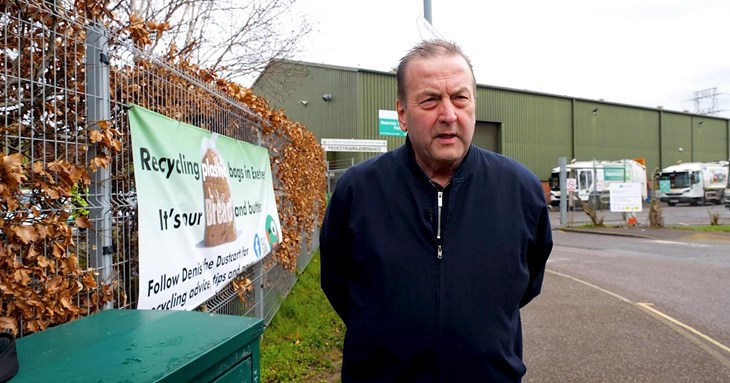Major investment in Exeter’s MRF will allow city-wide food waste collection
Published: 13 March 2024

A proposed £8m investment in Exeter’s Materials Reclamation Facility (MRF) will allow the city-wide expansion of food waste collections.
An Extraordinary Meeting of the Council next week will be asked to approve funding for a major upgrade to increase the capacity of the facility at Marsh Barton.
The food waste rollout for the city has reached its maximum capacity under the term of the Environment Agency Operating Licence for the depot at Exton Road. Currently around a third of the city benefits from the service.
To enable further expansion, dedicated food waste bays and several environmental enhancements are necessary.
If funding for the works is approved, the Council will secure a contractor, and once construction is complete and the operating permit revised, the food waste roll out can continue to the remainder of the city.
The upgrade will be funded primarily through CIL receipts, funds the Council receives from developments in the city which cannot be used to directly fund services.
City Council Leader Phil Bialyk said: “This is a critical facility for Exeter - it’s where all of our recycling is sorted - and I am very glad to announce that we are now planning an £8m investment to bring some major improvements.
“The improvements will allow the roll out of the food waste collection programme throughout Exeter. Lots of people have been wanting to see this - it is very important and that is what we intend to do.”
He added: “As a city we throw away one of the smallest amounts of waste of any location, which is great. But we also need to improve our recycling rates, and this will help us to do it.
“This is a key priority and something that we need to do - we need this facility to properly work for the city and this is what this investment will achieve.”
Between April and December 2023, more than 1,000 tonnes of food waste was diverted away from residual waste to anaerobic digestion, where it ends up as a soil improver and fertiliser.
As well as allowing the rollout of food waste collections to be completed, the project will ensure the MRF can continue to operate effectively for the next 15 to 20 years.
It will modernise the operation and increase capacity to protect the operation against future housing growth in the city.
Councillors will discuss the proposal at an Extraordinary Council Meeting at the Guildhall on Thursday 21 March, at 6pm.
